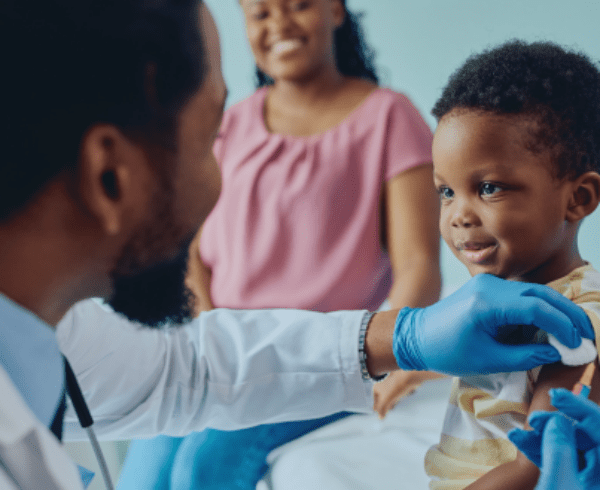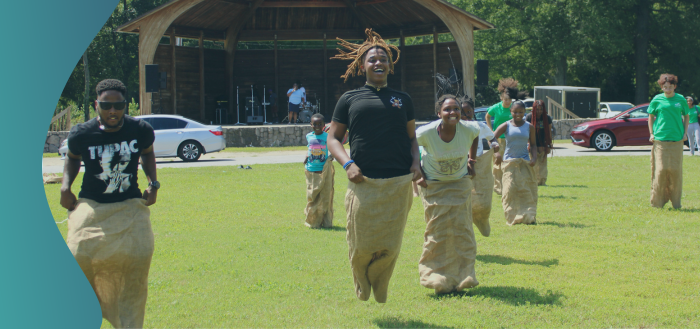February 18, 2021
The COVID-19 pandemic has taken a disproportionate toll on people who identify as Black, Indigenous, and People of Color (BIPOC), with research showing that BIPOC patients test positive for COVID-19 at higher rates than white patients. As COVID-19 care and vaccine distribution continues, more research is needed to better understand these disparities and their effects over time and geography to ensure a more equitable COVID-19 response moving forward.
OCHIN, which supports more than 500 community health care sites serving roughly 6 million patients nationally, is in a unique position to examine these health care disparities. Four out of 10 patients in the OCHIN network are non-white and at least a quarter are Hispanic/Latinx of any race. Additionally, the OCHIN network serves a high volume of patients who are uninsured or underinsured and who are medically complex, with one or more chronic health condition.
A new report from OCHIN and the Health Care Cost Institute (HCCI) assesses electronic health record (EHR) data from OCHIN and analyzes the COVID-19 positivity rates by race and ethnicity among community health center (CHC) patients. Funded by the Robert Wood Johnson Foundation’s Health Data for Action program, which is managed by AcademyHealth, the research is supported by a collaboration between HCCI, CareJourney, the Berkeley Research Group, and a network of geographically diverse health systems, including OCHIN, that aims to increase the availability of standardized, actionable information about the impact and progression of COVID-19.
The report, titled “COVID-19 Racial Disparities Persist in Community Health Centers’ Vulnerable Population,” was recently published on the HCCI website and its key findings include:
- Black, Hispanic/Latinx, and Asian patients are more likely to be diagnosed with COVID-19.
- On average, the report’s preliminary, unadjusted analyses showed that non-Hispanic Black patients and non-Hispanic Asian patients had a COVID-19 positivity rate of 5%, Hispanic/Latinx patients had a positivity rate of 6%, and non-Hispanic white patients had a positivity rate of 3% during the study period. This suggests that more work can be done to promote equitable access to COVID-19 care, including testing and vaccination, as patients experiencing persistent and systemic racism often disproportionately live and work in environments that put them at higher risk of contracting COVID-19.
- Disparities in disease burden among Black, Hispanic/Latinx, and Asian communities persist across regions at CHCs.
- Similar to previous research that examined the regional disparities in rates of COVID-19 from a sample of EHRs, the report also found regional variation in COVID-19 rates among CHCs, with New England having the highest percentage of positive cases in the study period. However, across regions, findings showed that non-Hispanic Black, non-Hispanic Asian, and Hispanic/Latinx patients experienced higher positivity rates than white patients consistently throughout the study period.
- CHCs are uniquely experienced in fighting the disparate impact of this pandemic, which underscores the need to continue to support and study their efforts.
- When compared to the race and ethnicity estimates of the U.S. Census, there are a greater proportion of Hispanic/Latinx, non-Hispanic Asian, and non-Hispanic Black patients in the OCHIN network. More than 4.5% of visits to OCHIN member clinics resulted in a positive COVID-19 result from March 2020 to the end of the study, highlighting a critical need to better understand how CHCs are working to fight the disparate impact of this pandemic on people of color and support their efforts to improve health outcomes through equitable care and vaccination.
This report builds upon previous OCHIN research aimed at understanding the role of CHCs as frontline providers of COVID-19 testing and care. It also lays the groundwork for future research to examine the long-standing racial inequalities within our nation’s health care system and how community-based care providers can help curb the impact of COVID-19 and drive health equity nationally.
This work was supported by the Robert Wood Johnson Foundation.
To learn more, read the full article on the HCCI website.













